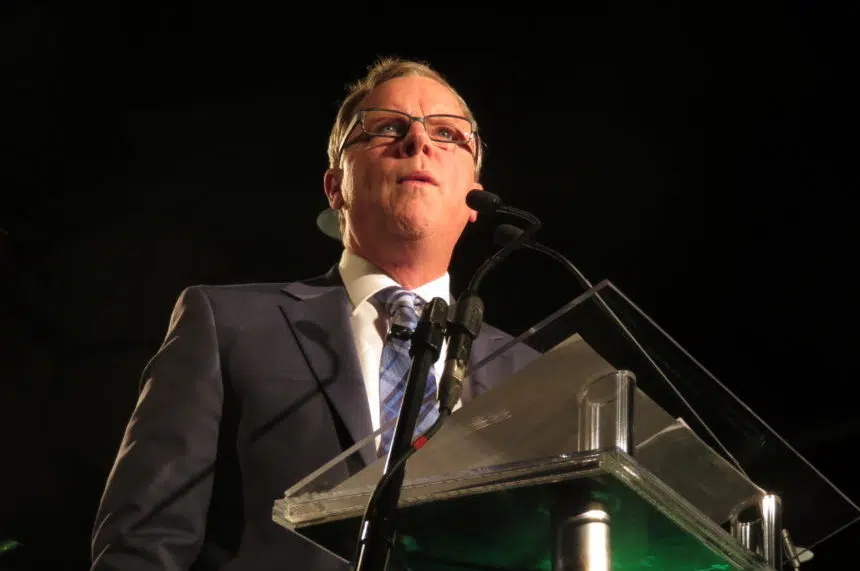Brad Wall says he’s hearing from more and more Western Canadians who are feeling like they’re getting a raw deal from Confederation.
Speaking Monday on Gormley, the former Saskatchewan premier said conversations he’s having online and in person during his travels between his home in Swift Current and his new job with a law firm based in Calgary, Alta. have left him concerned that the ties between Eastern and Western Canada are fraying.
“This is all very anecdotal, but it informs my conclusion that we haven’t seen this level of alienation since the late ’70’s and early ’80s,” Wall said, pointing to those decades when the National Energy Program caused widespread difficulties in the oilpatch, leading to the federal Liberals being completely shut out on the Prairies, and even a Western separatist MP being elected in an Alberta riding in 1984.
Wall said a trio of proposed laws adding regulation to the oil industry, coupled with the Trudeau Liberals’ moves to kill the Energy East and Northern Gateway pipeline projects and the stalled TransMountain pipeline expansion have combined to create a deep sense of grievance among many Western Canadians.
“People who work in the energy sector, or who have family members or who have friends that work in the energy sector — that number starts to get pretty large as a proportion of the population,” he said.
Wall singled out Bill C-48 as among the Liberal proposals that are driving anti-Ottawa sentiment on the Prairies. The bill would bar oil tankers from operating off the coast of northern British Columbia — effectively restricting the ability to export Western Canadian oil to markets outside the U.S.
“With no similar ban on the other side of the country. No similar ban for the St. Lawrence or the Atlantic, where, coincidentally, tankers bring foreign oil into Canada,” Wall said.
Wall said feelings of alienation appear to remain strongest among people who lean toward the Conservative Party of Canada and those with ties to the oilpatch. However, he said the issue of equalization payments appears to transcend those lines.
He noted that the program sees about $19 billion transferred from so-called “have” provinces to the “have-nots,” with over half the funds landing in Quebec.
“So there’s no end in sight to Saskatchewan and Alberta paying into this program, receiving nothing back, all the while being crippled by low commodity prices.”
Wall urged the federal government to put a halt to its plans for further regulation of the energy industry and called on people to contact their province’s senators to urge them to move against the legislation.
“Make sure they understand the importance of these bills being amended or withdrawn from a Western Canadian perspective in the interest of national unity. But also of our economy.”











